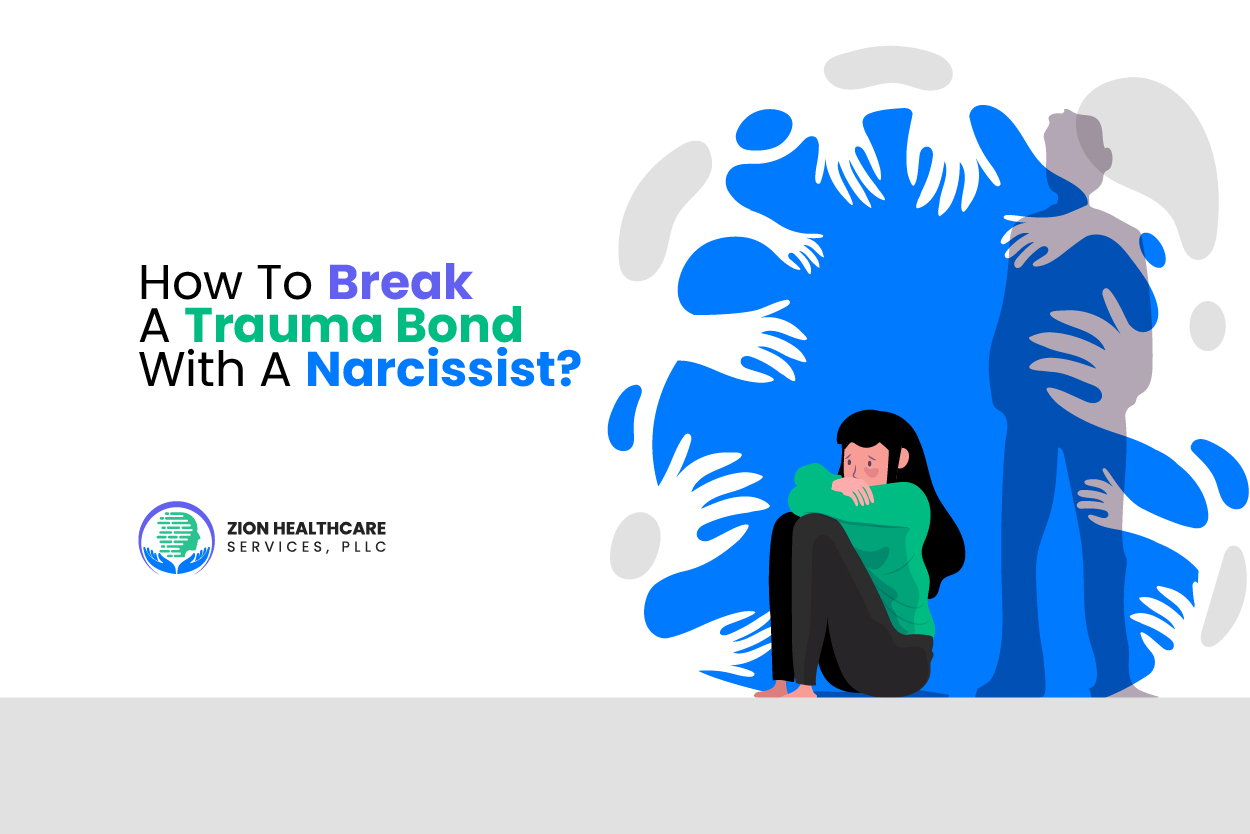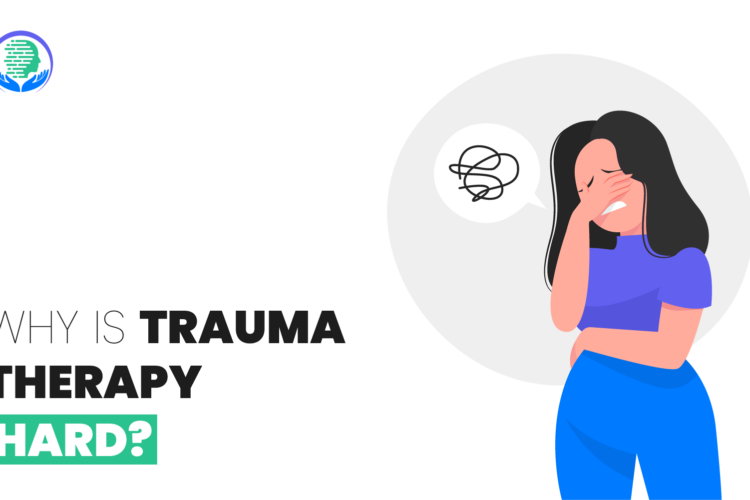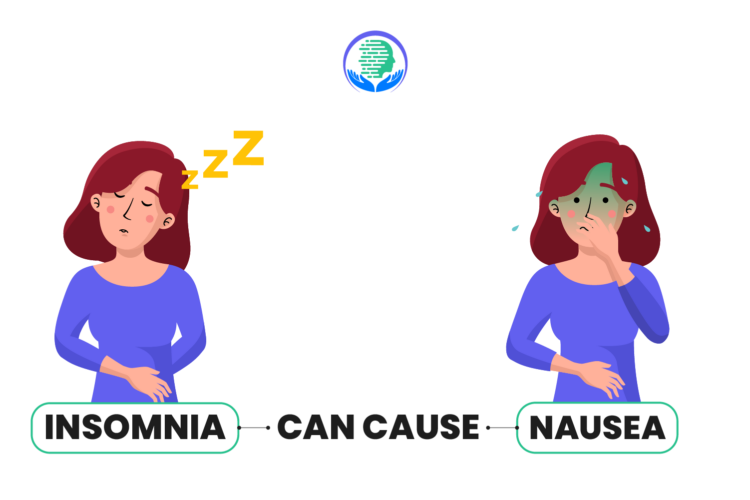
Most often, you ever feel that something is bothering you more than a time. Therefore, it is vital to understand the basic roots and the reasons a person faces while coping with some issues.
Trauma is such a concern that it makes you feel anxious and depressed all the time. When you don’t break the trauma bond, it will be difficult for you to get rid of it.
Likewise, when you adopt the means of narcissism, you might be able to overcome it.
Narcissism is when a person becomes more focused and sometimes called selfish about their concerns.
If you ever think that you have some issues related to the trauma, feel free to reach out to Zion Healthcare Services. We are available for you to give the best possible support and assistance.
Narcissist Trauma Bond
A trauma bond develops between a victim and their narcissistic abuser due to the volatile cycle of idealization and devaluation they experience in the relationship.
The narcissist will initially overwhelm their victim with messages of love, attention, and promises, making them feel special and cared for.
However, this is soon followed by periods of emotional abuse, criticism, neglect, or even violence. Being torn between these contradictory highs and lows of affection and cruelty causes great distress for the victim.
Therefore, a person will not recover from it rather than take proper action. So, after breaking the trauma bond with the narcissistic abuser, you’ll be calm and feel that life is going so happily.
If you are tangled in such a trauma bond and unable to get out of it and want to begin a happy and healthier life, you may contact us!
Trauma Bond Withdrawal Symptoms
Individuals who have been in trauma bonding with narcissists or other abusers may experience a range of emotional and physical symptoms during the process of breaking the trauma bond. Some common withdrawal symptoms include:
- Intense emotions like anxiety, sadness, panic, anger, fear, feeling lost or empty
- Cravings to contact the abuser for validation or a sense of relief
- Difficulty sleeping or eating as the body adjusts to low levels of stress hormones
- Withdrawal symptoms are often confused with missing the abuser
- Low self-esteem and feelings of shame from the trauma and abuse suffered
- Cognitive difficulties like problems concentrating, distractibility, memory problems
- Somatic complaints – physical tension, nausea, headaches, stomach issues
- Hypervigilance and jumped reflexes as the trauma response remains activated
- Flashbacks or unwanted memories of the relationship and abuse
- Isolation and loneliness as the abuser were a central focus of life
Narcissistic Abuse and Trauma Bonding Comparison
Narcissistic abuse and trauma bonding are interconnected concepts that often coexist within toxic relationships.
Here’s a comparison between narcissistic abuse and trauma bonding:
| Narcissistic Abuse | Trauma Bonding |
| Caused by narcissist’s inflated ego, lack of empathy, manipulation | Develops from intermittent reinforcement of affection/cruelty cycles |
| Includes gaslighting, insults, emotional neglect, control, cheating | Creates traumatic attachment, cognitive distortions, and compulsions to stay |
| Creates confusion, low self-esteem, questioning reality | The psychologically addictive nature of idealize/devalue cycles |
| Abuse is a direct means of controlling the victim | Effect of abuse that prevents escape/detachment emotionally |
Empath and Narcissist Trauma Bond
the terms “empath” and “narcissist” are not official psychological terms. They are commonly used to describe contrasting personality types rather than specific psychological conditions.
To grasp the dynamics when an empath and narcissist encounter each other, it’s essential to familiarize oneself with the typical traits associated with each personality type.
Here are some common traits often associated with an “empath”:
- They are highly sensitive and intuitive regarding the emotions and energies of those around them, experiencing them quite vividly as if they were their own.
- Providing comfort, care, and support to others comes naturally to empaths. They want to help when they sense someone needs it.
- Empaths frequently take on the role of confidante within their social circles, with others trusting them as the friend or family member people turn to for advice, understanding, or an empathetic ear.
- Caring deeply about others’ well-being and offering compassion instinctually to those with empathetic talent. It is natural for them to attend to the emotional needs they pick up on.
Narcissists are naturally:
- Insensitive
- Emotionally manipulative
- Cunning
- Requiring constant attention
Breaking the Trauma Bond
Breaking the trauma bond formed with a narcissistic abuser requires committing to a multifaceted healing process that focuses on self-care, education, regaining independence, and cultivating healthy support systems.
It is important to seek therapy to work through intense emotions and gain clarity, go no contact with the narcissist, and avoid any interactions that could rekindle old tensions and power dynamics.
Additionally, education about narcissistic abuse empowers victims to recognize toxic tactics that previously confused them.
Moreover, reframing distorted thinking, challenging self-blame, and nurturing compassionate self-talk helps rebuild dignity.
Thus, practicing positive coping strategies, finding fulfilling activities to replace the abuser’s former role, spending time with supportive loved ones, and being patient yet persistent enables the trauma responses to gradually dissipate.
Tips for Healing a Trauma Bond
Tips for healing from a trauma bond with a narcissist include as;
- Seek therapy with someone experienced in narcissistic abuse. Processing your experience in a safe space will help you heal.
- Educate yourself on trauma bonding and the tactics narcissists use, like idealization, devaluation, gaslighting, etc. Knowledge helps you recognize manipulation.
- Cut off all contact and resist hoovering attempts. Going no contact is essential for detachment and getting a narcissist out of your system.
- Identify your triggers and practice healthy coping mechanisms for cravings/emotions. Distract yourself with supportive people or activities you enjoy.
- Rebuild your self-esteem. Do nice things for yourself, pursue hobbies/goals, and spend time with caring people who uplift you.
- Challenge irrational thoughts. Reframe toxic narratives to accurately reflect the abuser’s actions/accountability, not your worth.
Conclusion
A trauma bond is such a such and toxic attachment that you can never get out of it rather than you affected by it on your own. Most of the time, you want to break the trauma bond but are unable to do so as you are very much attached to the person that you can’t deny anything thing.
You might learn how to recover from the trauma bond through the above information. Conversely, you can get more assistance regarding trauma treatment with Zion Healthcare Service. We recommend the best treatment option for you: medication or psychotherapy.
FAQs
How do you detach from a trauma bond?
There are some tips and tricks that you can use to alleviate the trauma bond, and these are;
- Avoid contacting the abuser
- Block the abuser from social media
- Never try to read out to the abuser again
Can a trauma bond be broken?
Breaking the trauma bond with effective management and some useful resources is possible. Likewise, you may take the support and guidance from the mental health expert.
How do you detox from a trauma bond?
Go no contact with the narcissistic ex, seek therapy to work through emotions, spend time with supportive people, and stay busy with activities to reclaim independence and identity apart from the traumatic relationship.
How do you turn a trauma bond into a healthy relationship?
It’s not possible to transform an abusive trauma bond into a healthy relationship – the best option is to end contact, focus on healing through therapy and supportive actions, and, once ready, pursue fulfilling connections with caring partners who treat one with consistent kindness, trust, and respect.
How to break a trauma bond fast?
Apart path from the person that bothers you and makes you anxious and depressed. So, be consistent in your thoughts and stick to them so that you’ll never tangle that situation again.
How to break a trauma bond with a narcissist over?
To some extent, being a narcissist is good for breaking the trauma bond. You’ll never escape the traumatic condition; nevertheless, you try something unique or new.


